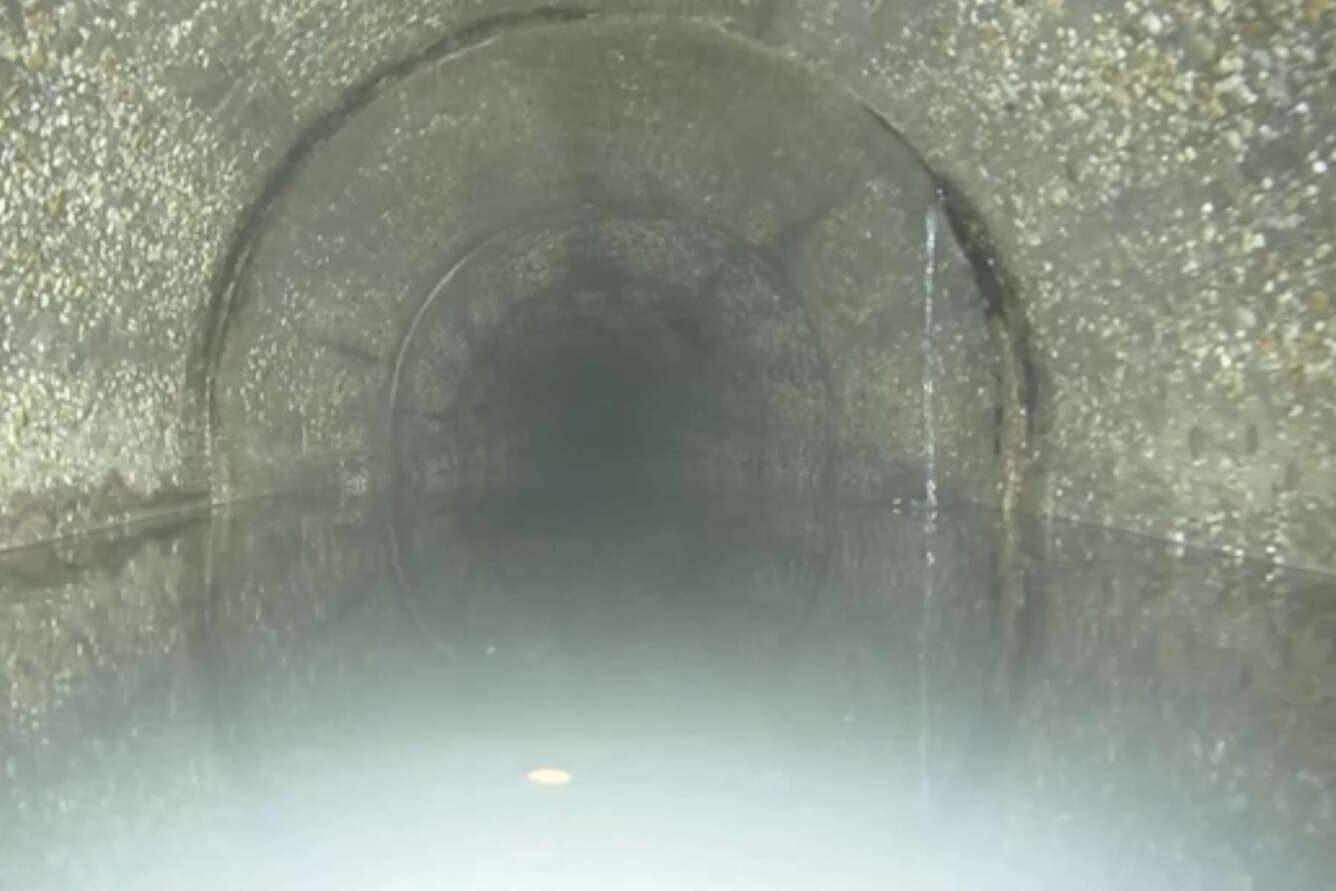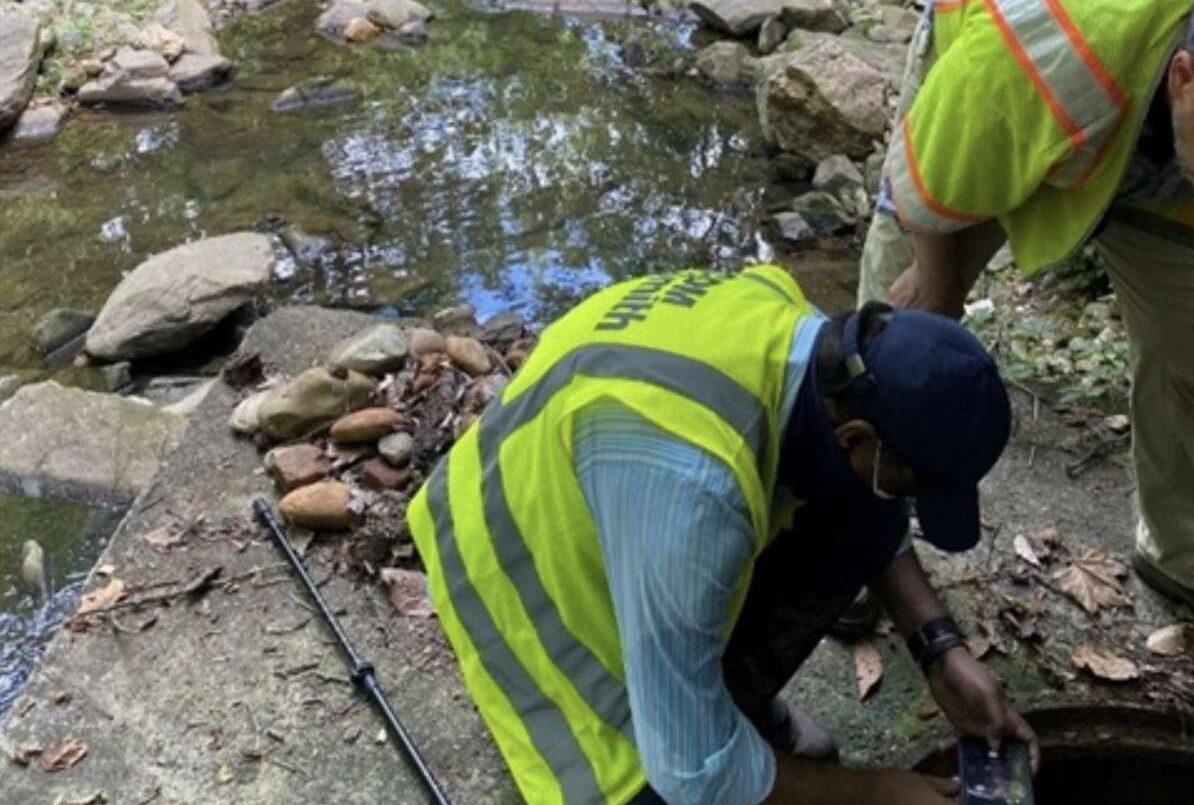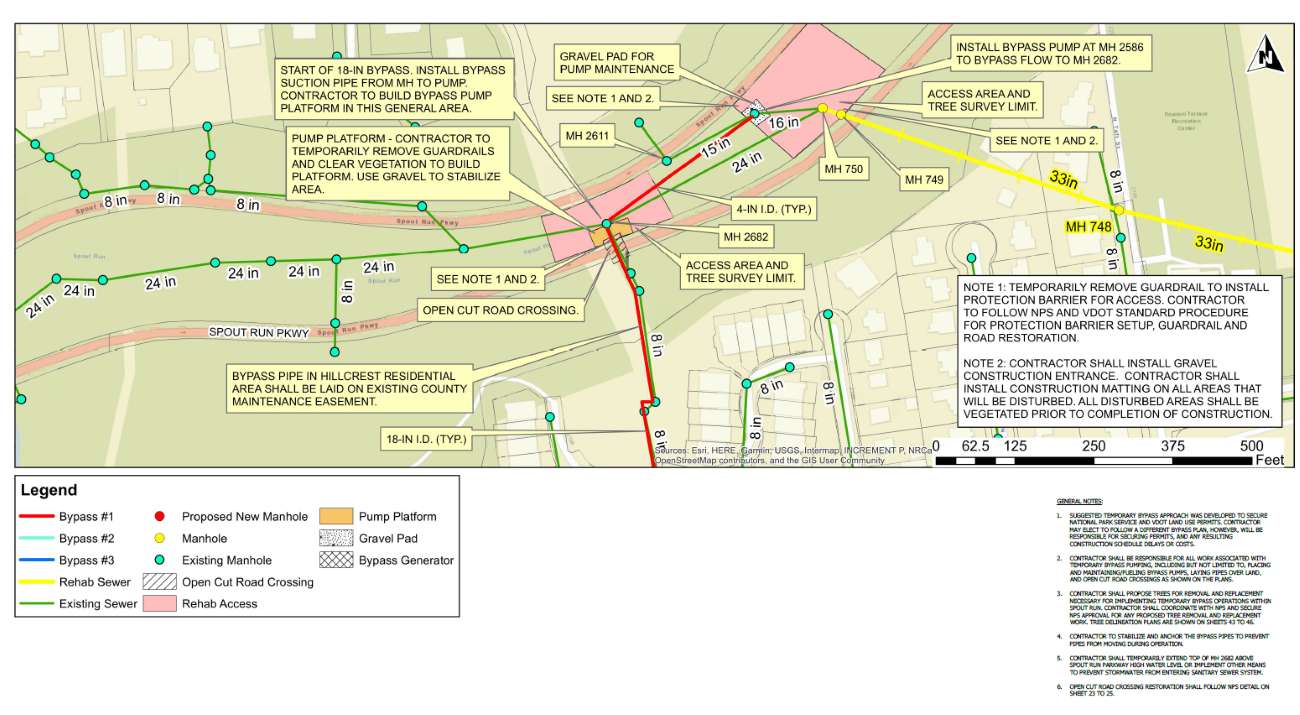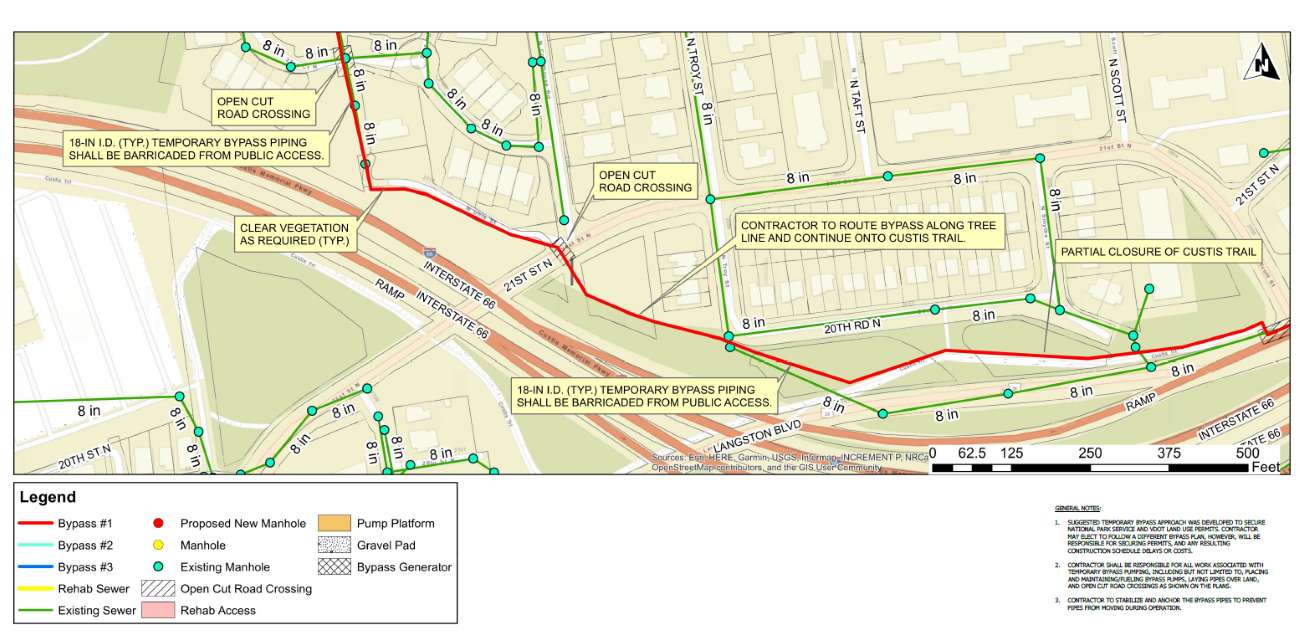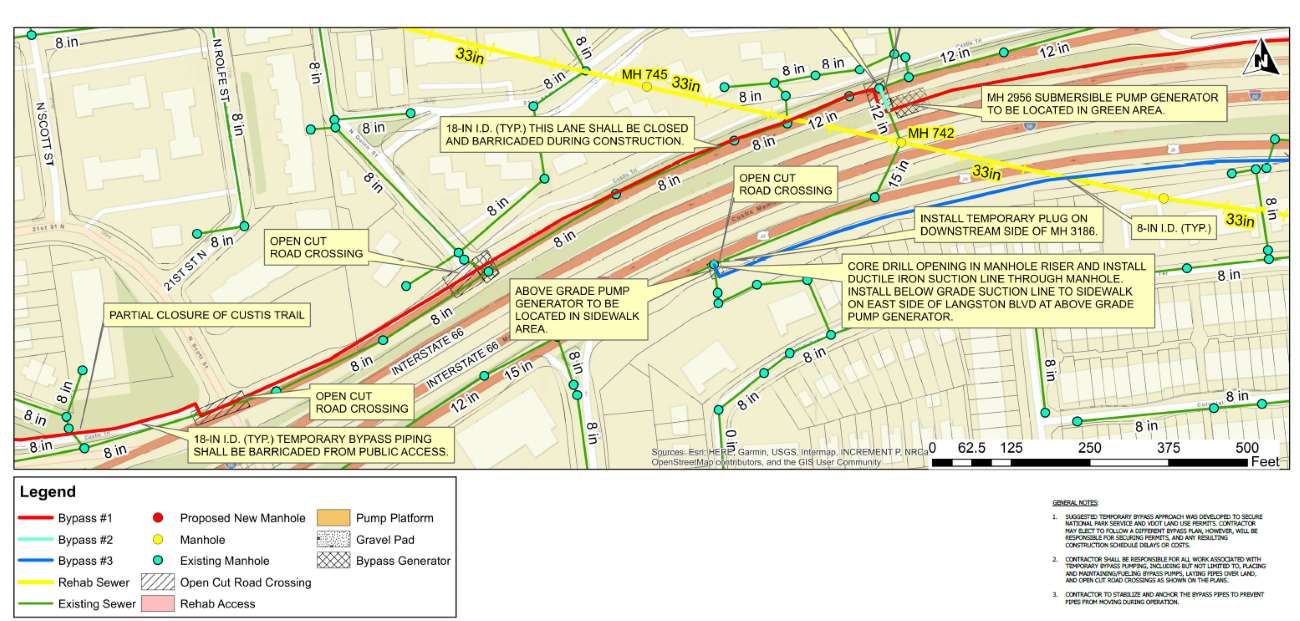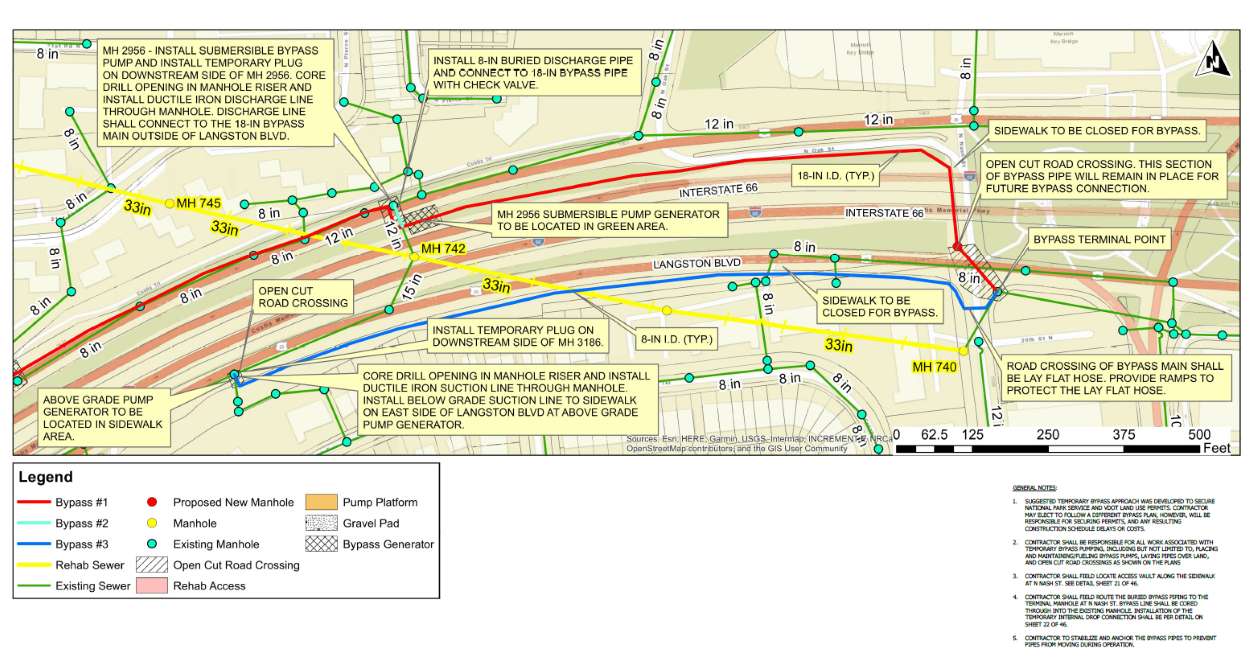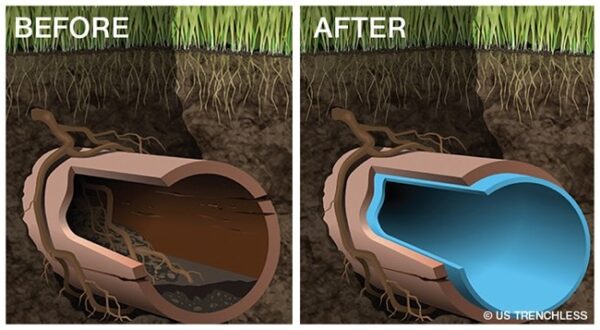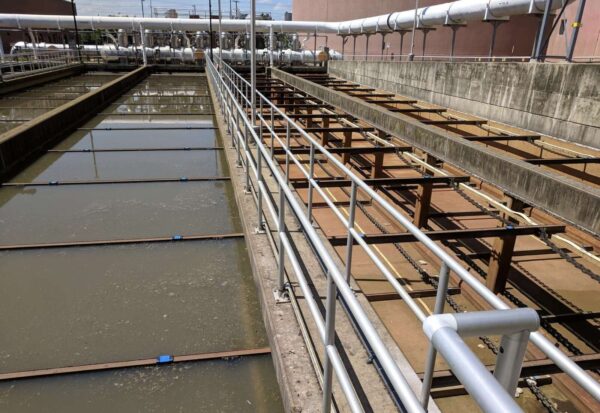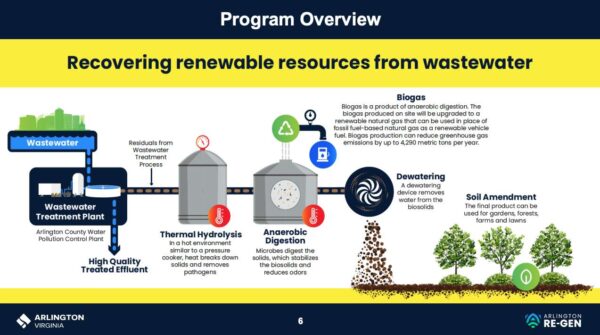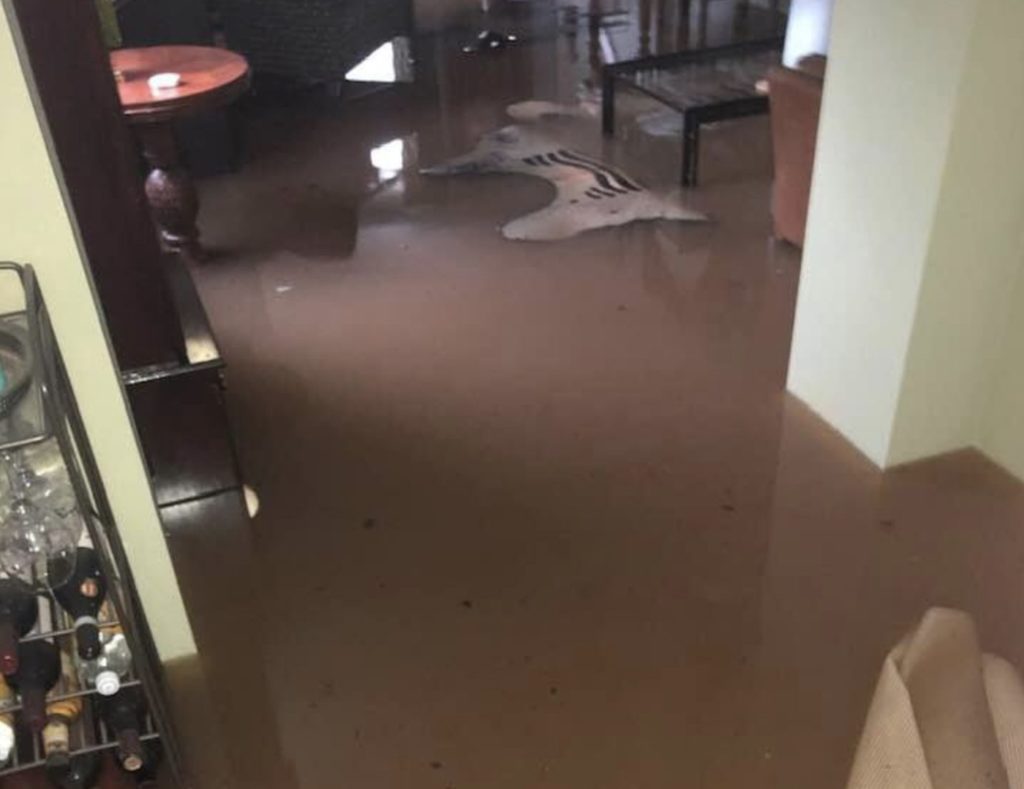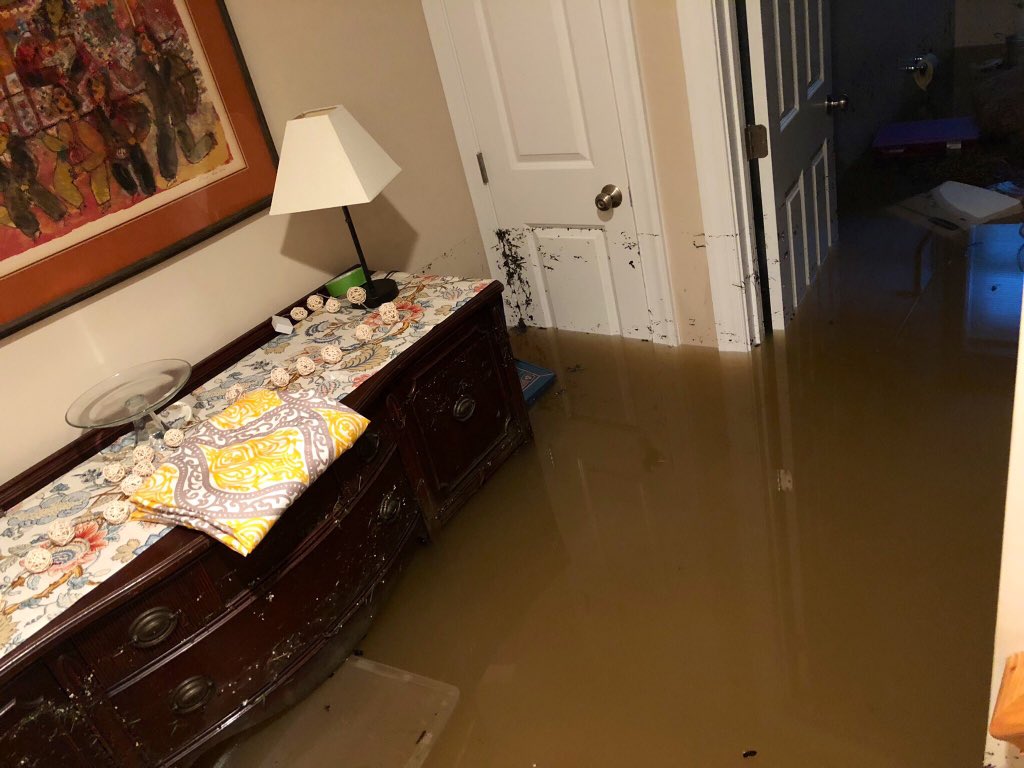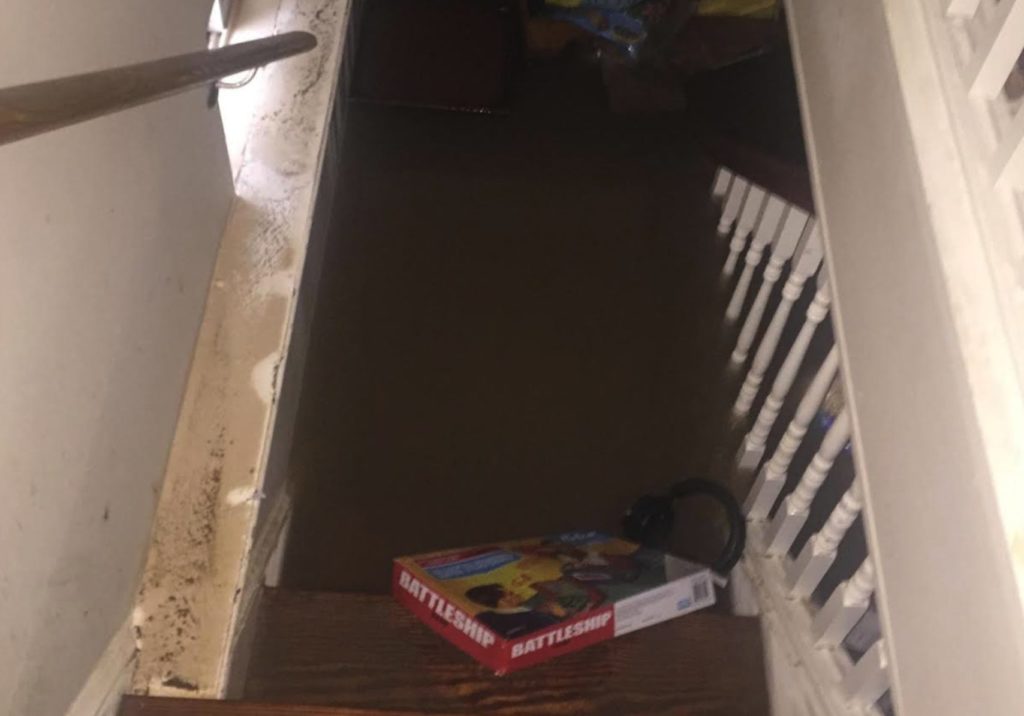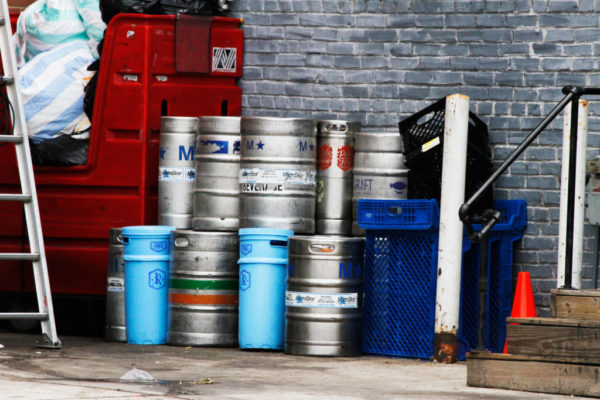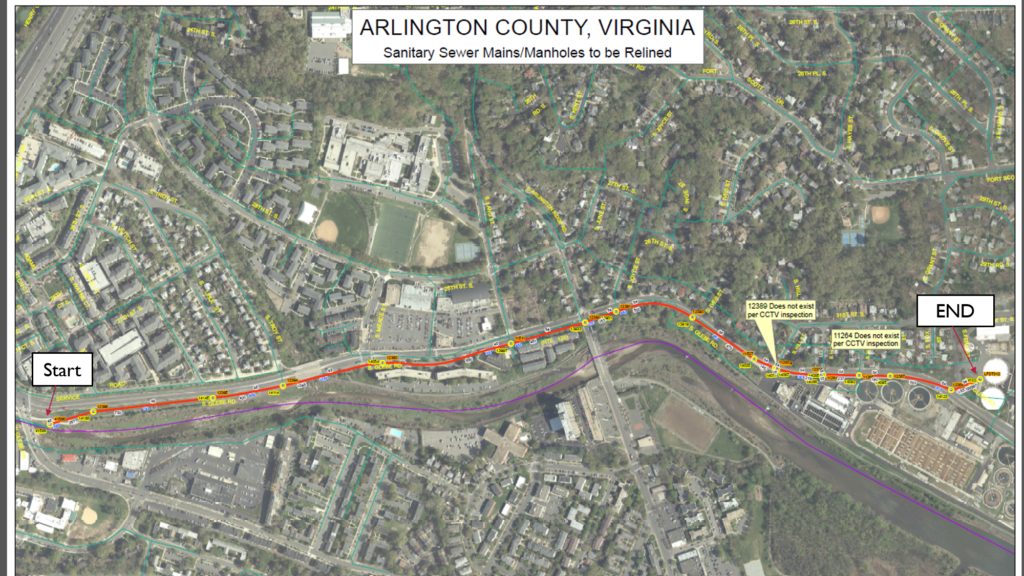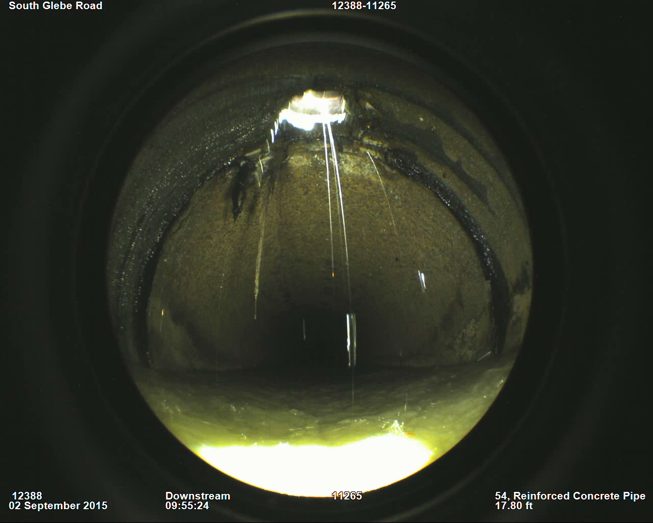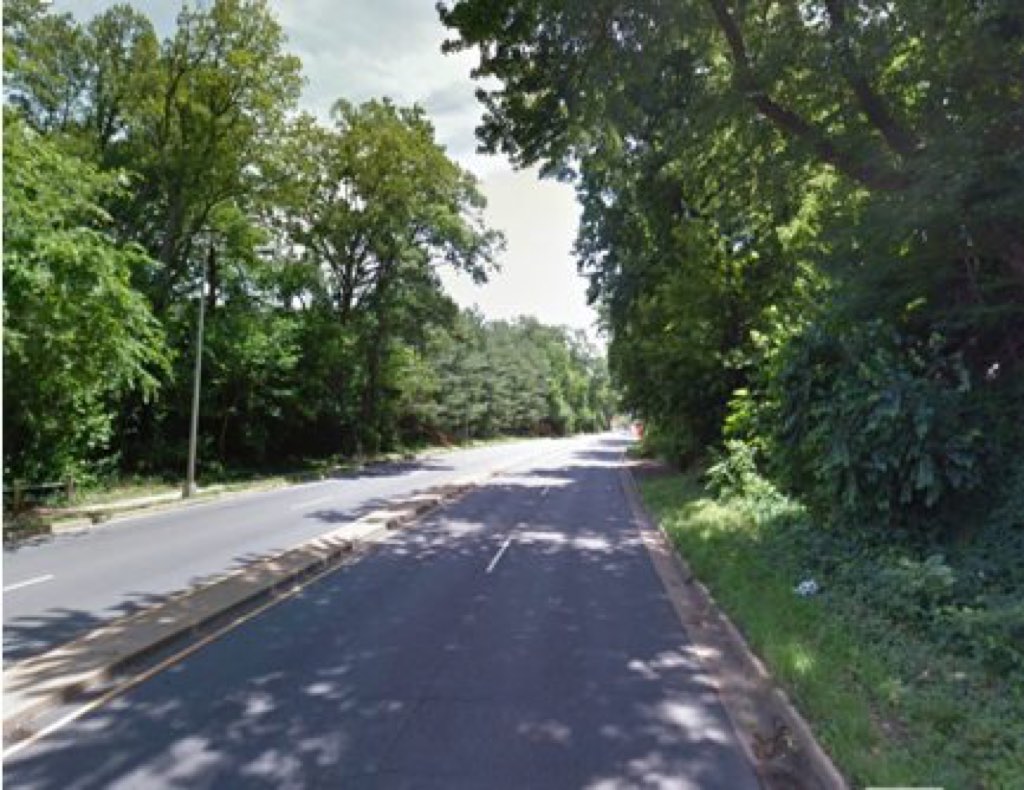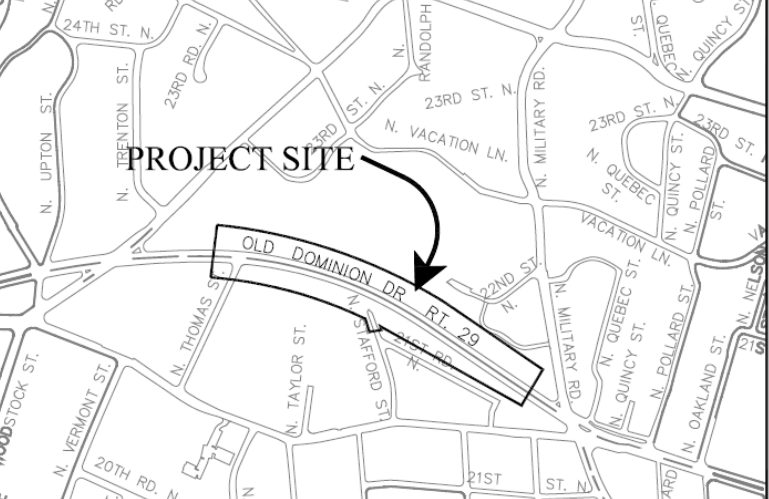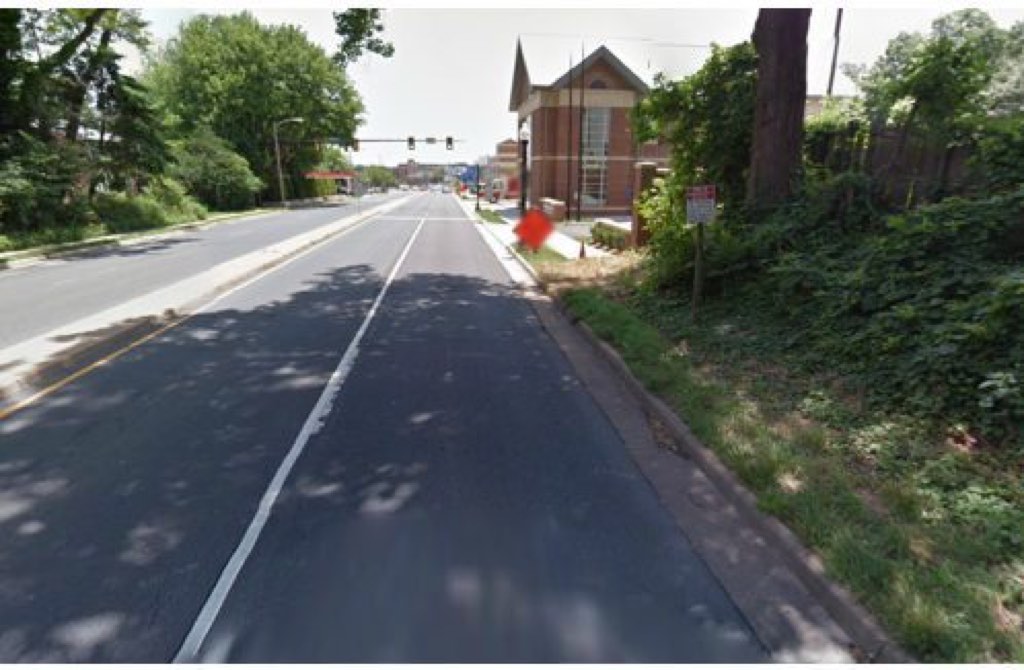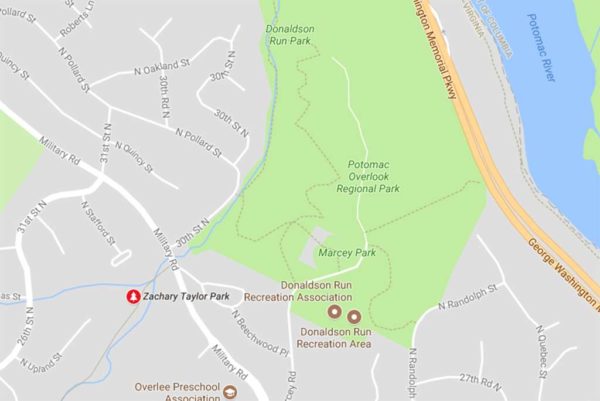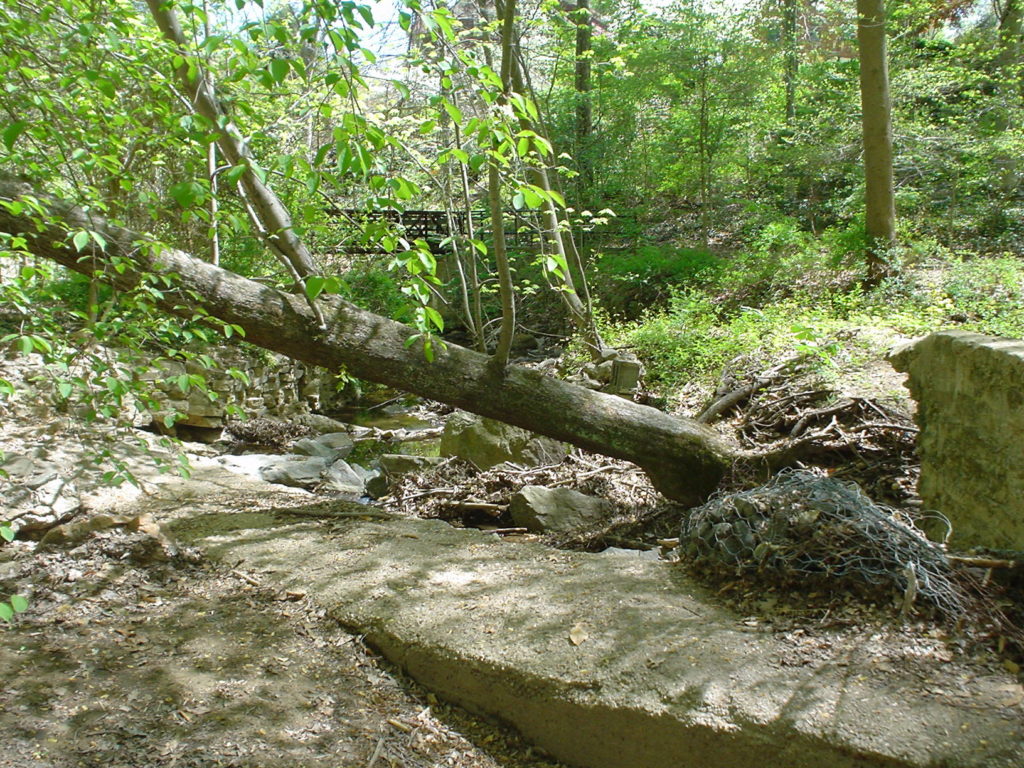
Armed with some federal funding, Arlington County plans to stem stormwater runoff with native plantings and fix leaky sewer pipes that serve thousands of people.
On Saturday, the Arlington County Board accepted a $2.25 million federal grant to be split evenly among three planned projects. These projects, expected to cost some $6 million in total, are intended to reduce runoff into streets and streams, filter pollutants from local streams, and rehabilitate sewer pipes needing serious repairs.
The upgrades, a county report says, will “mitigate the impacts of existing impervious coverage and protect local waterways, and prevent sanitary sewer structural failure, infiltration and inflow.”
(Sewer pipes experience infiltration and inflow when excess water flows in from sources such as stormwater drains and leaky pipes.)
A $750,000 portion of the grant will fund plans to add more native plantings along part of the Gulf Branch stream, near Gulf Branch Nature Center, and to build rain gardens where S. Walter Reed Drive intersects with 6th and 9th Streets S. The projects, aimed at reducing runoff and filtering pollutants from streams and streets, are expected to cost $1 million overall.
The rain gardens on S. Walter Reed Drive will be planted when Arlington makes transportation upgrades on the major road, including upgraded bike lanes and pedestrian crossings.
Another $1.5 million will be split between two sewer rehabilitation projects, expected to cost $5 million overall.
First up is a $2.8 million project to rehabilitate a 5,876-foot section of a 30-inch sanitary sewer between Arlington Blvd and Columbia Pike, serving all of East Falls Church and parts of Falls Church and Fairfax County.
Three years ago, inspectors found many leaking joints in the now-48-year-old sewer, which runs through the Four Mile Run stream valley. These leaks cause groundwater and stormwater to seep into the pipe, contributing to high bacteria levels in Four Mile Run, according to the report.
That also generates wastewater and increases chemical and energy costs at the Arlington County Water Pollution Control Plant downstream, the report said.
The county also proposes to rehabilitate a 2,906-foot section of a large pipe in Rosslyn that the report says “zig-zag[s] between high-rise buildings and through underground parking garages” between N. Lynn Street and the interchange at Arlington Blvd and Richmond Hwy.
“The sewer was inspected in 2016 and many sections were deemed to require immediate rehabilitation due to structural deficiencies which allow for significant infiltration and inflow and could lead to structural failure,” it says, noting this would also generate more wastewater and higher chemical and energy costs at the wastewater facility.
For both sewers, the county first proposes cleaning the pipes. Then, to prevent leaks, a resin liner would be forced against the walls of the pipes, effectively creating a “new pipe encased within the old sanitary sewer,” per the report.
“Impacts such as travel lane closures, trail and sidewalk detours, bus stop relocations, etc. will be communicated in advance to the public following award of the construction contract, as equipment staging and sewer bypass layouts won’t be determined until then,” it continues.
The grants come from the U.S. Dept. of Housing and Urban Development at the request of Rep. Don Beyer, as part of a 2023 spending bill Congress approved last December. The funding applies to expenses through Aug. 31, 2031 and no local match is required.



